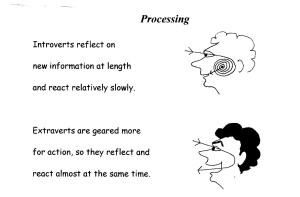人類喜歡尋找刺激,有可能是億萬年的進化,
對基督徒來說,亦有可能是神在創造亞當和夏姓時,
一早埋下的種子。
I feel monotony and death to be
almost the same.
( Charlotte Bronte )
Life is 10% what happens to you
and 90% how you react to it.
( Charles R. Swindoll )
In each action we must look
beyond the action at our past,
present, and future state, and
at others whom it affects, and
see the relations of all those things.
And then we shall be very cautious.
( Blaise Pascal )
有些事情必須快速反應,但為了避免出錯,
未雨綢繆及預先的訓練或者自我訓練,就有重大的價值,
顯出為何「快速反應」必須有「慢思慢想」的準備。
然而「慢思慢想」要求可以非常高,非常嚴格,
視乎所面對的事件的複雜程度而定,
況且博弈的第一守則就是「沒有必勝的把握,就不要出手」,
所以筆者認為嚴謹思考訓練在教育和職業兩方面,
都應該會有重大的需求。
We cannot think first and act afterwards.
From the moment of birth we are immersed
in action and can only fitfully guide it
by taking thought.
( Alfred North Whitehead )
Luck is where preparation meets opportunity.
( Randy Pausch, The Last Lecture )
為何人類之中有「篤行」這種行為?
也許部份原因是命運,也許部份原因是教育,
但其中一定有「自由意志」free will 的元素。
Everything can be taken from a man but
one thing: the last of the human freedoms
──to choose one’s attitude in any given set
of circumstances, to choose one’s own way.
( Viktor Frankl, 1959 )
由於近年來腦神經科學急速的發展,
不少腦神經科學家已經不相信人有「自由意志」,
認為是一種幻覺或錯覺 illusion,
完全否定佛教所說的「一念天堂,一念地獄」。
其實腦神經科學的發現,
只不過是將「自由意志」的辯論推往更高的層次,
但可能讓人類不但更加接近《1984》的社會,
而且可能會出現接近 zombie 的奴隸。
腦神經科學似乎假設了人類沒有心靈,
或者人類的心靈必須存在於腦袋中的某一部位。
我們固然不能夠肯定所有人類都有心靈,
但「瀕死經驗」NDE 告訴我們,那些有心靈的人,
心靈不但可以在腦袋之外,甚至漂浮在身體之外。
Daniel Dennett
Stop Telling People They Don’t Have Free Will
Dennett on Consciousness and Free Will
[刺激和反應]
Man is a machine which reacts blindly to external
forces and, this being so, he has no will, and
very little control of himself, if any at all.
What we have to study, therefore, is not psychology
──for that applies only to a developed man
──but mechanics. Man is not only a machine
but a machine which works very much below
the standard it would be capable of maintaining
if it were working properly.
( Peter Dimianovich Ouspensky )
不少成功的文學家及藝術家,由於欠缺了科學訓練,
或者由於欠缺了嚴謹的哲學思考訓練,
往往傾向於討厭理性的思考,重視面子而罔顧事實,
喜歡憑個人當下的直覺、情緒,
和個人未經批判的立場、信念、觀點、喜好、偏見,
對一切外來的刺激作出反應,
完全不懂得人需要對真理謙卑,而不是對有名氣的人謙虛,
結果他們在複雜的事情上往往醜態百出,貽笑大方,
而且越是「成功」、有少許江湖地位的文學家及藝術家,
亦越容易自我感覺良好,於是越容易醜態畢露。
When our emotions are engaged,
we often have trouble seeing things as they are.
( Robert Greene )
Success makes a fool seem wise.
( Latin Proverb / Henry George Bohn )
Science is not about building a body of ‘facts’.
It is a method for asking awkward questions and
subjecting them to a reality-check, thus avoiding
the human tendency to believe whatever makes
us feel good.
( Terry Pratchett )
重視心靈的人,一定重視懷疑精神和批判思維,
而且懷疑和批判既對事,亦對人,包括自己在內,
一定重視行動的目的,運用的工具和採用的手法。
刺激和反應是一個非常重要的課題,
因為「目的、思考、行動」必然是三位一體,
一旦將之分割,分開來判斷,就會出問題。
大部份人都是憑著他們未經批判的信念和意識形態,
再加上情緒,對外來的刺激去作出反應,去採取行動,
所以無論是哲學家、心理學家或者社會學家,
都會重視這個課題。
The heart, the end and the means are inseparable.
whatever is true, whatever is noble,
whatever is right, whatever is pure,
whatever is lovely, whatever is admirable
——if anything is excellent or praiseworthy
——think about such things.
( Philippians 4:8 )
It is the mark of great people
to treat trifles as trifles and
important matters as important.
( Doris Lessing )
Not what we experience,
but how we perceive what we experience,
determines our fate.
( Marie von Ebner-Eschenbach )
Proper preparation is the key to our success.
Our acts can be no wiser than our thoughts.
Our thinking can be no wiser than
our understanding.
( George S. Clason )
If you fail to prepare, you’re prepared to fail.
( Mark Spitz )
「自由意志」的思考,涉及生物方面的「刺激和反應」。
這是「行為心理學」一向研究的課題。
意義治療心理學家維特弗蘭高 Viktor E. Frankl
一早就對「刺激和反應」這個課題提出了他的說法:
Between stimulus and response there is a space.
In that space is our power to choose our response.
In our response lies our growth and our freedom.
( Viktor E. Frankl )
其後美國商人、作家和思想家 Stephen Covey 亦提出相似的說法:
Between stimulus and response, there is a space.
In that space lies our freedom
and our power to choose our response.
In our response lies our growth and our happiness.
( Stephen Covey )
高層次的人重視自由,一般人重視快樂,
前者只是少數人,後者包括大部份人,分別在此。
Human freedom involves our capacity to pause
between the stimulus and response and, in that
pause, to choose the one response toward which
we wish to throw our weight. The capacity to
create ourselves, based upon this freedom, is
inseparable from consciousness or self-awareness.
( Rollo May, The Courage to Create, p.100 )
任何生命中對個人有影響的事情一旦發生,
可以視之為一種「刺激」stimulus。
除了「身體 body」的五官是接觸「刺激」的工具之外,
代表「我 ego」和「心靈 soul」的腦,
更是「經歷」happening 和「經驗」experience 的主體。
從修行者的角度來看,他不會害怕任何「刺激」,
因為「刺激」是對修行者智慧的考驗,
也是修行者如何「活在當下」的考驗!
最高級的生命,在接觸到比較艱苦或複雜的「刺激」的時候,
往往懂得管理個人的情緒和控制直接反應的衝動,
所以會先經歷一個「闡釋」interpretation 的過程,
先對這個「刺激」的性質作出初步的判斷。
S [刺激] → I [闡釋]
經過訓練的人在「闡釋」和「判斷」的階段,
當然採取科學的態度,用佛教的語言就是「如是觀」。
科學中的觀察 observation 和實驗 experiment,
就是一種「刺激」,而科學從假說到理論的過程,
就是實踐人類性格中的「真和誠」,
企圖達到迫近真理的「如是觀」。
所謂「真和誠」,就是即使是接觸新的事物,
科學態度的觀察一定避免自己欺騙自己,
亦避免讓任何個人的信念影響個人的觀察。
Beside learning to see,
there is another art to be learned
──not to see what is not.
( Maria Mitchell )
「闡釋」的過程大致上將「刺激」分成四類:
1. 認知類 [出現於接觸新事物或者需要知識的時候]
2. 分析類 [出現於需要解難的時候]
3. 行動反應類 [出現於需要自衛或者迅速反應的情況]
4. 審美類 [各花入各眼]
人生中不少的錯誤,往往是由於「認知錯誤」,
由於「讀書的青少年時代欠缺了足夠的思考訓練」,
由於「懶得思考或者思考能力不足,導致分析錯誤」,
由於「思考能力不足,結果魯莽及衝動地立即行動」,
又或者因為「過度重視行動,忽視思考」而產生。
「闡釋」需要思考,
甚至遇上複雜問題時需要謹慎思考,謀定而後動,
有時甚至需要預先學習特定的知識和技術,
但並非所有人都喜歡思考,或者有能力思考,
亦並非所有人都有能力預先學習特定的知識和技術,
更何況遇上複雜及重大問題時所必須的三座大山:
「嚴謹思考、知識和技術」。
一般而言,半害怕思考和完全害怕思考的人佔大多數,
因為他們希望節省精力,所以懶得思考,
或者根本沒有能力思考複雜或者抽象的課題。
畢竟推理,提出疑問和假說,再去印證,非常花時間!
在社會化或者洗腦的過程中,父母,師長,朋友,傳媒,
社會制度,教育制度,個人的性格傾向及喜好,
這多個重大的因素經過多年的互動,
就會形成了一般人個人的意識形態和價值觀。
所以一般人都會不自覺地採用了大眾或中眾的想法,
來對事物作出反應,獨立思考的自由度非常低。
參考:
《思考可以是一種信仰》(一)
《思考可以是一種信仰》(二)
《思考可以是一種信仰》(三)
《思考可以是一種信仰》(四)
《思考可以是一種信仰》(五)
Man’s Search for Meaning by Viktor Frankl

